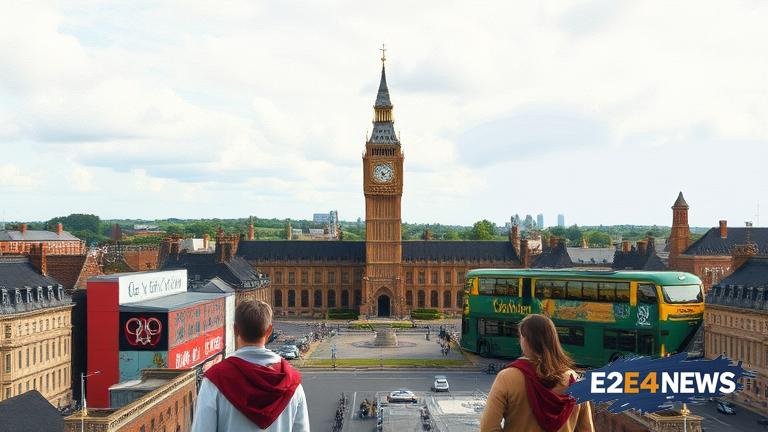The government’s decision to reject the referendum proposal has been met with disappointment from local leaders, who had been advocating for a public vote on the issue. The proposal had been put forward by Derby City Council and Derbyshire County Council, with the aim of gauging public opinion on the potential merger of the two authorities. However, the government has stated that it does not believe a referendum is necessary, and that the decision should be made by local leaders instead. The government’s decision has been criticized by some, who argue that it undermines the democratic process and ignores the will of local residents. Others have expressed concerns that the merger could lead to a loss of local identity and autonomy. Despite the government’s rejection, local leaders have vowed to continue exploring options for greater collaboration and cooperation between the two councils. The proposal had been seen as a way to improve efficiency and reduce costs, as well as to provide better services for local residents. However, others had raised concerns about the potential impact on local jobs and services. The government’s decision is likely to be seen as a setback for those who had been advocating for a merger, but it is not expected to be the end of the debate. Local leaders are likely to continue exploring options for greater collaboration and cooperation, and it is possible that the issue could be revisited in the future. The decision is also likely to have implications for other local authorities in the UK, who may be considering similar mergers or collaborations. The government’s stance on the issue is seen as a reflection of its broader approach to local governance, which emphasizes the importance of local decision-making and autonomy. However, others have argued that the government’s approach is too rigid, and that it fails to take into account the unique needs and circumstances of different local areas. The debate over the potential merger of Derby and Derbyshire councils is part of a broader conversation about the future of local governance in the UK. As the country continues to evolve and change, it is likely that there will be ongoing debates and discussions about the best way to deliver local services and governance. The government’s decision to reject the referendum proposal is seen as a significant development in this debate, and it will be interesting to see how the issue unfolds in the coming months and years. The people of Derby and Derbyshire will be watching with interest as local leaders continue to explore options for greater collaboration and cooperation. The government’s decision may have rejected the referendum proposal, but it has not resolved the underlying issues and challenges facing local governance in the area. It remains to be seen how the issue will be addressed in the future, but it is clear that it will continue to be a major topic of debate and discussion. The UK government’s approach to local governance is under scrutiny, and the decision to reject the referendum proposal has raised questions about the government’s commitment to democracy and local autonomy. The people of Derby and Derbyshire deserve a say in the future of their local services and governance, and it is hoped that their voices will be heard in the coming months and years. The government’s decision may have been a setback for those advocating for a merger, but it is not the end of the debate. The issue will continue to be discussed and debated, and it is likely that there will be further developments in the coming months and years.





